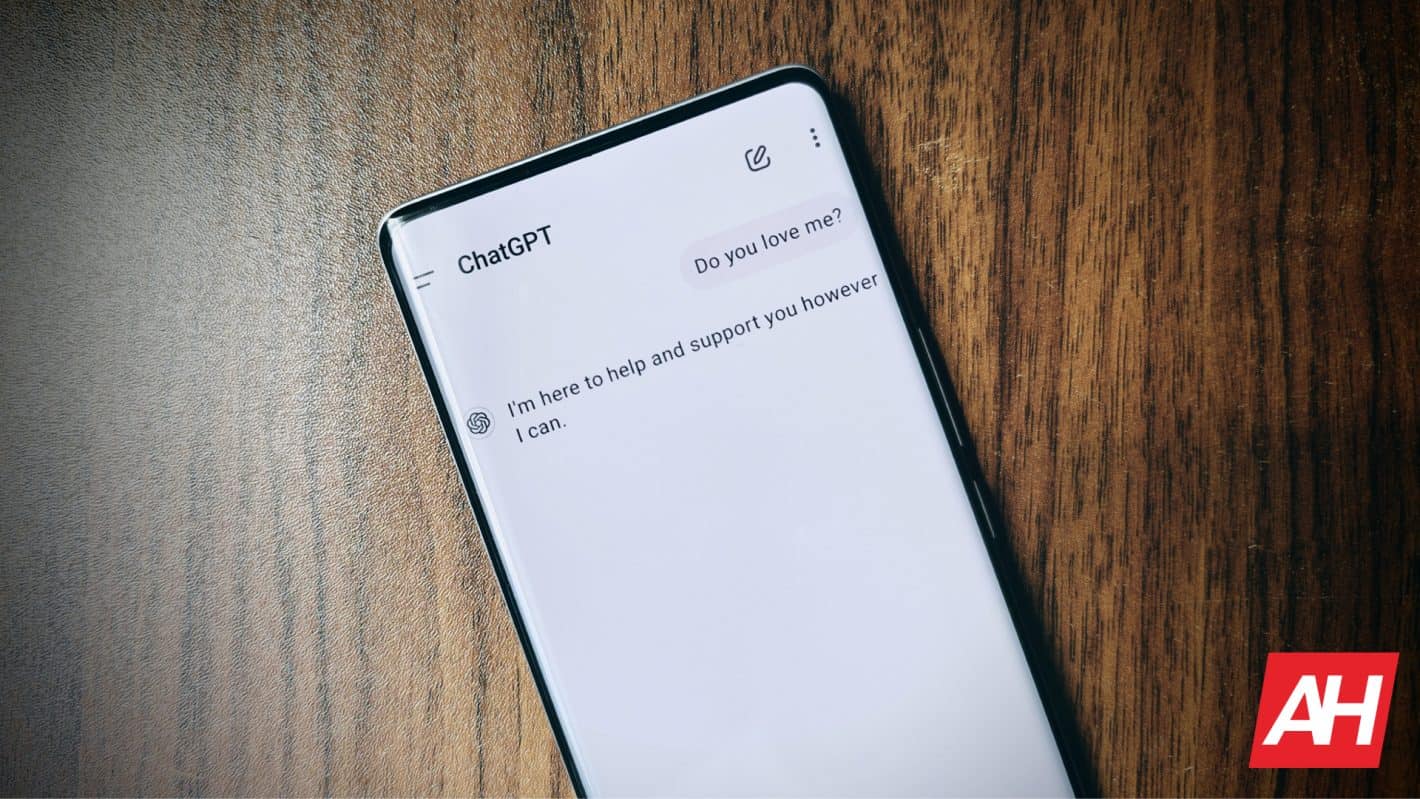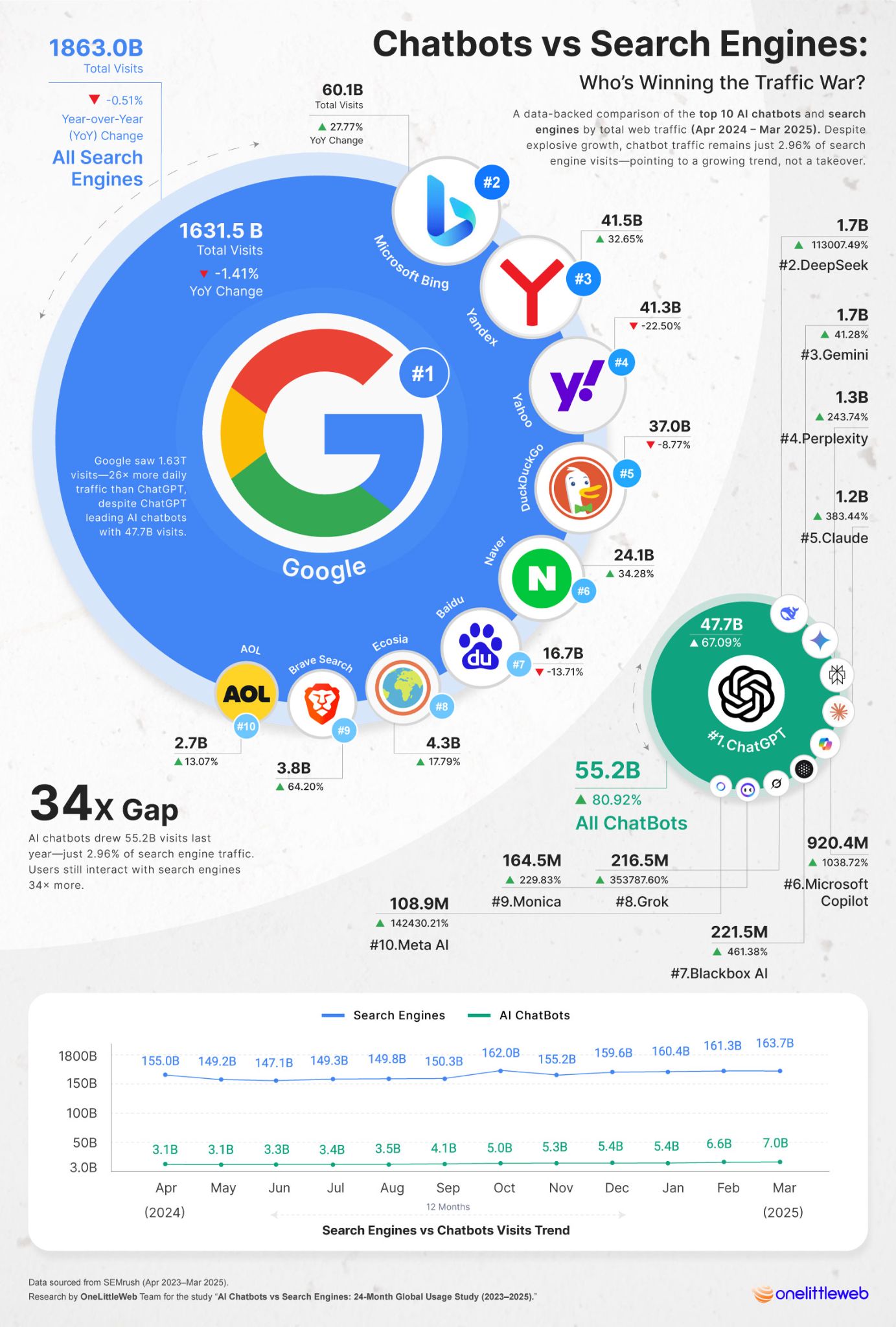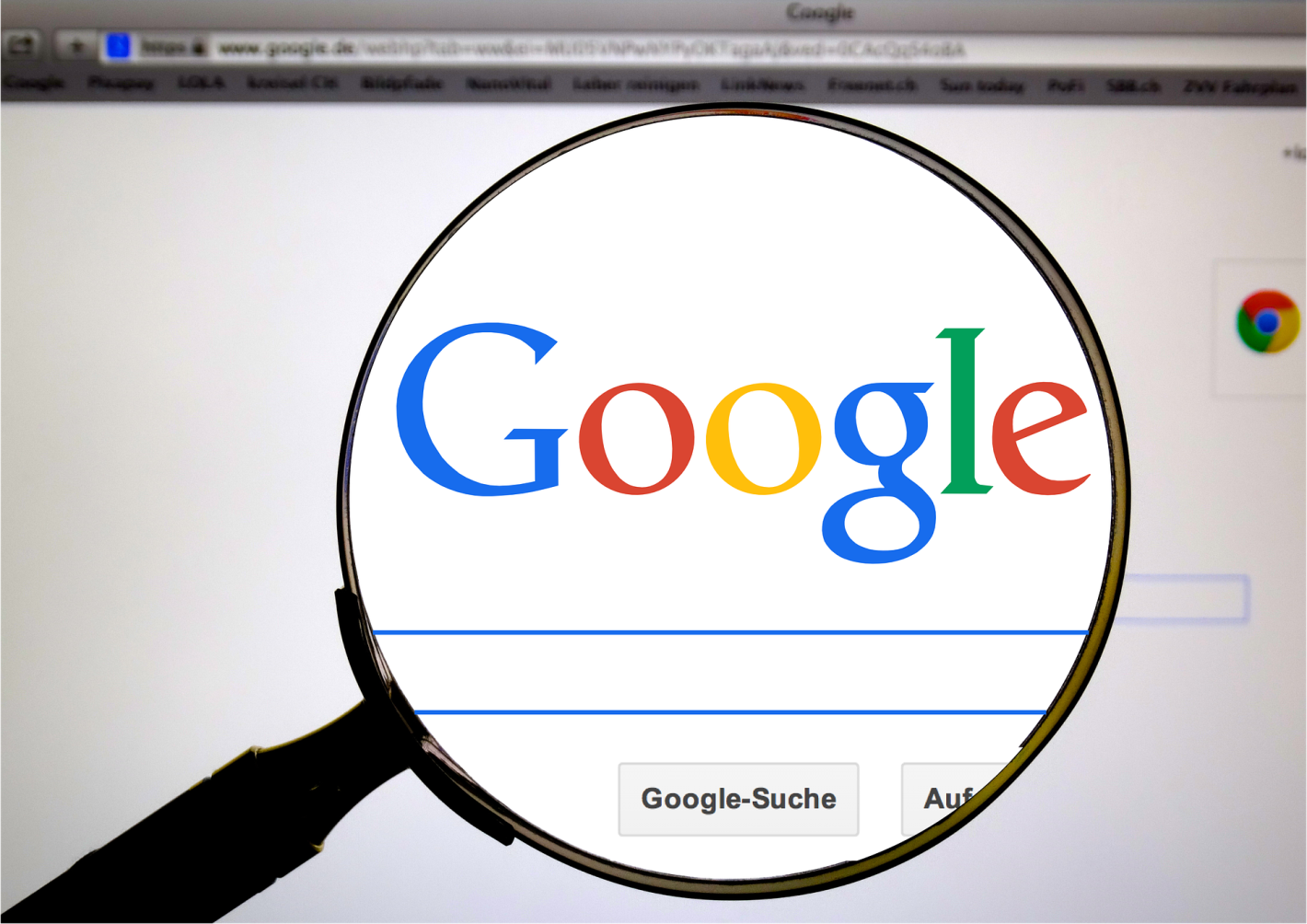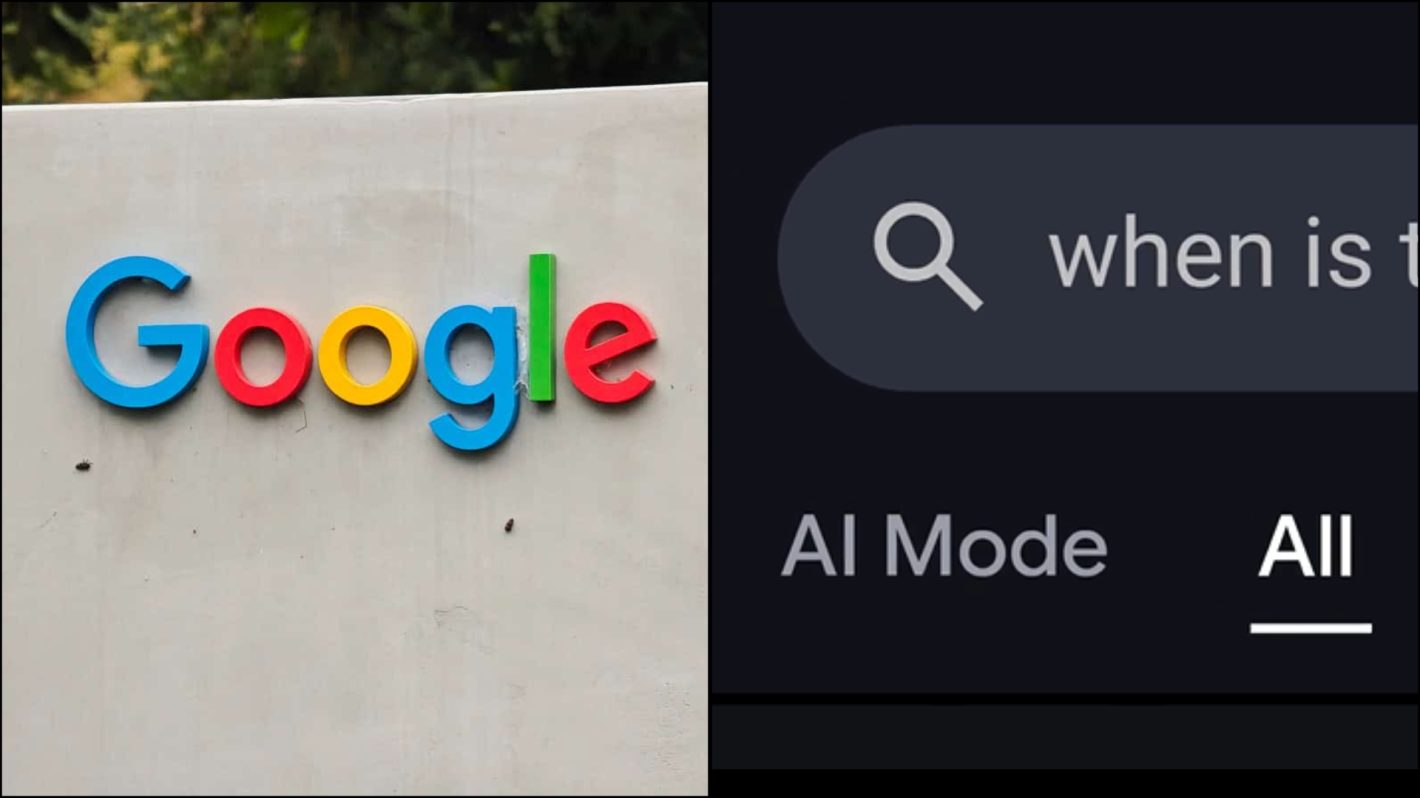
In our current digital landscape, there constantly appears to be a fresh gadget or platform poised to revolutionize everything. Recently, much of the discussion has centered around AI chatbots. Additionally, these conversations often touch upon how AI might rival conventional search engines such as Google. Indeed, several AI firms have either debuted or declared their intentions to introduce search engines of their own. For instance, Perplexity is among those planning to roll out an all-encompassing AI-driven web browser.
Therefore, will we soon cease "Googling" and instead begin " chatting" with AI for information? To comprehend this shift, let's examine the present scenario.
The Striking Ascendancy of AI Chatbots
Artificial intelligence chatbots have experienced significant growth recently and are anticipated to keep expanding swiftly. By way of illustration, as of 2024, the chatbot industry had reached approximately $7.76 billion. It’s forecasted this value will expand by over 20% each year up to 2030. Regarding web traffic directed towards AI services, there has been an astounding rise of more than 250% within just the past year.

What's fueling this huge expansion? A few factors are at play here. The underlying tech supporting chatbots has advanced significantly, enabling these systems to grasp our queries more effectively and deliver more helpful responses with a more personable touch. Moreover, organizations have recognized that chatbots can enhance their customer support services. The "agentic" abilities of artificial intelligence are assisting businesses in boosting efficiency and cutting costs. Offering instant replies to customer inquiries around the clock? That's now achievable thanks to AI.
It’s not just companies that are happy. Users are also increasingly comfortable with AI and its ability to provide quick, personalized answers. Some even use chatbots instead of search engines for certain tasks. Furthermore, everything points to the next big step in the field of AI chatbots being that they learn more about you. Google has already announced that Gemini will be able to learn more about its users by analyzing their habits in other company services (Gmail, Photos, etc.). Thus, the answers will be increasingly useful, personalized, and unique for each one.
Search Engines vs. Chatbots: Which Influences More Individuals?
Chatbots are all the rage and growing rapidly. However, when it comes to traffic, traditional search engines like Google are still king. If we compare web traffic, search engines had far more visits than chatbots in the last year. In fact, search engines generated 34 times more visits than AI chatbots, according to SEMrush data.

In March 2025, search engines saw an average of 5.5 billion daily visits. In comparison, AI chatbots had only reached approximately 233.1 million visits. This disparity appears significant initially. Google continues to dominate the search industry without competition. The company’s offering holds about 90% of the market share. However, this dominant status isn’t entirely advantageous for Google as it has led to an adverse antitrust decision which might necessitate actions like selling off Chrome along with other possible solutions.
Other key participants in the search engine market encompass Microsoft’s Bing, Yahoo Search, Yandex, DuckDuckGo, and Baidu. When discussing AI chatbots, OpenAI’s ChatGPT stands out due to its widespread adoption. Nonetheless, several formidable rivals are vying for attention, including Microsoft Copilot, Google Gemini, Perplexity, Claude AI, and DeepSeek. Additionally, we must acknowledge that novel platforms are surfacing at remarkable speed. It wasn’t long ago when nobody anticipated that a relatively obscure platform like DeepSeek could abruptly rise up and impact stocks significantly, even causing fluctuations in NVIDIA’s share price.
Even with the rise of chatbots, the truth remains that conventional search engines remain our main destination for seeking out information on the internet.
To What Extent Are We Utilizing Chatbots Versus Search Engines?
According to reports, many people have tried chatbots at least once. We’re talking about 88% of people, according to a Tidio study. However, the truth is that we still use them much less frequently than search engines. In 2023, only 35% of people who used chatbots did so instead of a search engine to get answers. Most of us still use Google and its partners for our daily searches.

This situation is natural, considering how integrated Google has been into our lives for so long. Currently, our smartphones provide us with instant access to the full power of Google. A Google user makes about 200 searches per month, while a Perplexity Search user (an AI-powered search engine) only makes about 15.31. According to data from Search Engine Land, in 2024, Google received 373 times more searches than ChatGPT. This tells us that, although chatbots are gaining ground, they are still not the main option for most people when searching for information.
Why Are Search Engines Still Kings?
Even with all the buzz around chatbots, conventional search engines continue to dominate the online information landscape. The reason why?
A primary factor behind this capability is the vast quantity of data that search engines like Google have cataloged. The company’s crawlers have processed an immense number of webpages—far exceeding what most chatbots can utilize. Consequently, you're likely to uncover details on nearly any subject through a search engine query.
Moreover, we've relied on search engines for quite some time now, making us well-acquainted with their usage. Phrases such as "Google it" have seamlessly integrated into everyday speech. Their user-friendly interfaces continue to contribute significantly to their widespread appeal. However, be cautious; these platforms aren't lagging in technology advancements either. For instance, they're integrating artificial intelligence capabilities—such as Google’s "AI Overviews"—which provide more straightforward responses directly within the search results. Google aims to merge traditional searching methods with cutting-edge AI technologies to enhance usability further. This evolution is evident through the ongoing developments in Search’s AI mode.

An essential aspect is that search engines provide results from various sources. This enables us to contrast data and determine what to trust. In comparison, chatbots may lack transparency regarding their sourcing or might fabricate details—an issue known as "AI hallucination." Additionally, for comprehensive investigations of subjects requiring consultation with numerous references, search engines outperform chatbots. A chatbot offers just one response, whereas a search engine presents multiple avenues for exploration.
Ultimately, the advertising-driven business model of search engines is firmly established and enables continuous investment in enhancing their technological capabilities. In contrast, chatbots are still grappling with achieving profitability. OpenAI admits to operating at a loss despite having subscribers paying $200 per month for the ChatGPT Pro plan.
To put it briefly, the vast quantity of data search engines manage along with their continuous advancement through AI provides them a significant edge over chatbots at present.
What Does the Future Entail?
What should we anticipate then? Likely, search engines along with AI chatbots will persist and get even more intertwined. Search engines will employ AI to provide improved responses, whereas chatbots will grow savvier and more dependable. We might begin leveraging chatbots for swift, targeted inquiries, while still relying on search engines for comprehensive investigations.
The markets for these two technologies will keep expanding, with AI potentially driving up overall inquiry rates. Businesses must grasp the functioning of both search engines and chatbots to effectively connect with their clientele. While SEO remains crucial, we also have to take into account how chatbots retrieve and utilize data.
In the end, the future probably holds a mix of both realms, with conventional searching and conversational AI supporting one another to assist us in obtaining the necessary information as smoothly and effectively as possible.
The post Artificial Intelligence Has Just Started a War Against Google Search appeared first on Android Headlines .
0 Response to "AI Just Launched a Bold Challenge to Google Search"
Post a Comment